Department Events
All future and past departmental events since 2017 are listed here in a chronological order.
If you need more information about any of our events, please contact us via email or through our contact page.

Transpacific Dialogues: Asian/American Art of Collaboration ╱ Symposium
The two-day public symposium, Transpacific Dialogues: Asian/American Art of Collaboration, will explore the transformative potential of aesthetic inquiry on how we make collaborative art. It will feature invited artists, scholars, and curators actively involved in creating, researching, and curating collaborative projects across Asia and the United States. Participants are dedicated to transcending national and identity-based boundaries that often constrain collective action in socially engaged art. Additionally, the symposium will address museum practices, with curators from regional institutions discussing their collaborative approaches to curating and collecting Asian/American art amidst diverse interests and perspectives.
Through this multidisciplinary gathering of artists, scholars, and curators, the symposium reimagines collaborative art making as a form of reparative worldmaking. Participants and audiences will explore how transpacific collaboration embodies the praxis of repair. Conceived during the Covid-19 outbreak and resonating profoundly in the face of escalating anti-Asian racism since the pandemic’s onset, the symposium examines how Asian and Asian American artists, navigating between Asia and North America, have organized and cultivated artistic spaces. These spaces foster new kinships and strengthen alliances, often independent of institutional support, aiming to mend racialized disconnections within and between North America and Asia.
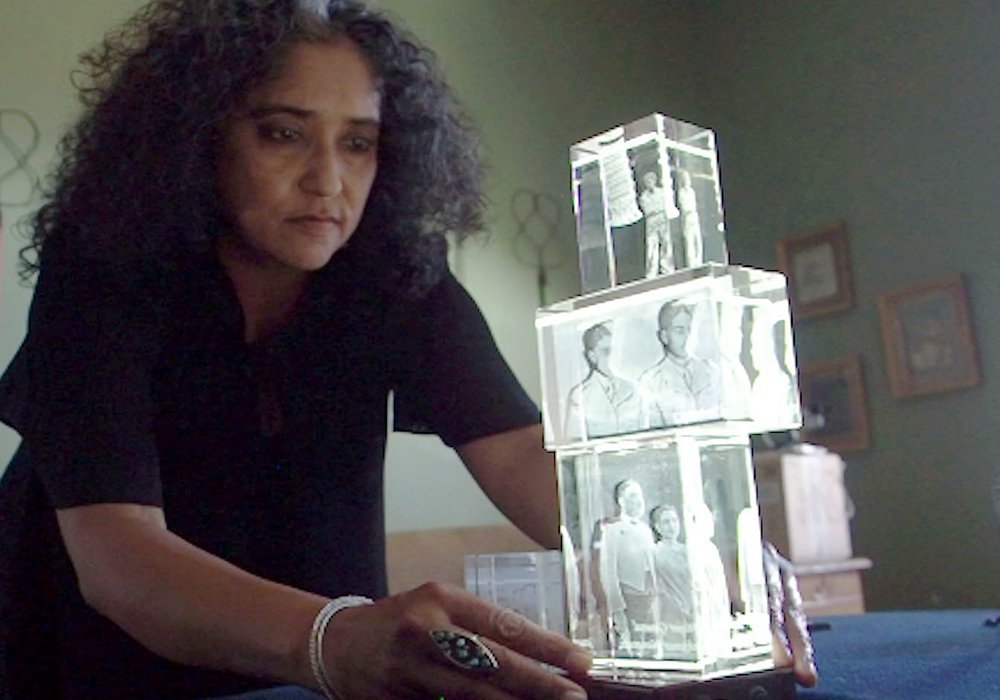
Hidden Histories Speaker Series // Annu Palakunnathu Matthew: The UNREMEMBERED: Indian soldiers of World War II
Annu Palakunnathu Matthew’s photo-based artwork combines still and moving imagery using photography, video, sculpture, and sound, often beginning with a personal experience and evolving into larger collaborations with others to reveal lesser-known histories. Her work re-examines historical narratives in both the United States and South Asia, draws on archival photographs to examine concepts of memory and to re-examine historical narratives and the legacies of colonization. Amongst Matthew’s projects, she will discuss her recent work exploring ignored and unheard stories from India’s past. This includes Open Wound - Stories of Partition, utilizing photo-animation, installation and the work of The 1947 Partition Archive to address missing voices and the turmoil experienced by those who were displaced by the British India Partition; and The Unremembered - Indian Soldiers of World War II, a multimedia installation acknowledging the the complete erasure of contributions of Indian soldiers who volunteered to take up arms for their British colonial rulers. Matthew will parse out the confluence of factors that played a role in this history complicated by Partition. Though trained as a photographer, her work increasingly uses the ever-expanding digital toolbox and has moved into installations. The result is a blend of still and moving imagery that shifts the viewer's perspective to question established and marginalized histories.

Hidden Histories Speaker Series // Jason Tranchida and Matthew Lawrence: Scandalous Conduct / Newport 1919
Providence-based artists Jason Tranchida and Matthew Lawrence discuss their multi-year historical project Scandalous Conduct | Newport 1919, examining a US Navy-sanctioned raid on homosexual activity in Newport, RI. At the end of World War I, this event now obscured by history, sparked a national scandal when sailors and civilian men alike were targeted in a covert operation against “immoral acts”. The artist duo discuss their research and efforts to bring to life a multimedia production featuring, “An Episcopal minister. 41 naval recruits. A zealous newspaper editor. A pandemic. A drag show. A beanstalk. The YMCA. And a future president of the US.”

Hidden Histories Speaker Series // Ana Flores: The Island Draws Me / The Connected Histories of Cuba and Rhode Island
Sculptor, ecologist, and writer Ana Flores creates art and installations connecting communities through a deep sense of place rooted in the ways place and geography inform who we are. Her enduring interest in how geography shapes us comes from her own experience of displacement as a refugee from Cuba who came to the United States with her family. As Artist-in-Residence for the U.S. Fish and Wildlife Agency at the headquarters in Charlestown, Rhode Island, the artist’s research about the history of that site led to her discovery of the state’s history with slavery. In 2006 the erased history of slavery in Rhode Island converged with Flores’s Cuban history in an unlikely setting, the woodlands of Southern Rhode Island near to the sacred land of the Narragansett people. This discovery coincided with a project the artist was working on based on a return trip back to Cuba. Flores will discuss how her research for both converged in the series, The Island Draws Me, and a later collaborative installation at the Center for Justice and Slavery at Brown University, Makers Unknown, Material Objects and the Enslaved.

After Everything Is Extracted: Artist Talk by Ruanne Abou-Rahme and Basel Abbas
How rich our mutability, how easily we change (and are changed) from one thing to another, how unstable our place—and all because of the missing foundation of our existence, the lost ground of our origin, the broken link with our land and our past...
— Edward W. Said, After the Last Sky
Following their exhibition, May amnesia never kiss us on the mouth, at the Dia Art Foundation and the MoMA (opening: April 23, 2022), RISD is hosting multimedia artists Ruanne Abou-Rahme and Basel Abbas. The artist talk is followed by a Q&A. This even is free and open to the public.
This event is made possible by the Turner Theatrical and Performance Design Grant in conjunction with the Division of Liberal Arts’ MA Program in Global Arts and Cultures (GAC), “Theories of the Image” graduate seminar, and “Power, Pastness and Performances of Monumentality: An Immersive Seminar-Studio.”
This event is organized by Avishek Ganguly (Literary Arts and Studies, Global Arts and Cultures), Christopher Roberts (Theory and History of Art and Design, Experimental and Foundation Studies), and Foad Torshizi (Theory and History of Art and Design, Global Arts and Cultures).

Art History Colloquium: Mary Bergstein
STATUES COME TO LIFE: ARCHAEOLOGY / PSYCHOANALYSIS / PHOTOGRAPHY / FILM

Screening of Be Natural: The Untold Story of Alice Guy-Blaché
Synopsis
When Alice Guy-Blaché completed her first film in 1896 Paris, she was not only the first female filmmaker, but one of the first directors ever to make a narrative film. Be Natural: The Untold Story of Alice Guy-Blaché follows her rise from Gaumont secretary to her appointment as head of production in 1897, and her subsequent illustrious 20-year career in France and in the United States, as the founder of her own studio and as writer, director, and/or producer of 1,000 films—after which she was veritably erased from history. Until now…. Directed by Pamela B. Green, the film is narrated by Jodie Foster.
Trailer
Recent Press
LE MONDE: August 12, 2019: Emmanuelle Lequeux's article on Alice Guy-Blaché mentions Be Natural
THE NEW YORK TIMES: April 25, 2019: AO Scott’s review:
https://www.nytimes.com/2019/04/25/movies/be-natural-untold-story-alice-guy-blache-review.html?login=email&auth=login-email
THE NEW YORK TIMES: April 26, 2019: Elizabeth Weitzman’s feature ran with artwork
https://www.nytimes.com/2019/04/26/movies/alice-guy-blache-be-natural.html
LOS ANGELES TIMES: April 18, 2019: Katie Walsh’s positive review ran with artwork
DEADLINE: May 15, 2018: Pete Hammond's positive review from Cannes

Interference Fringe: L.N. Tallur
An artist’s talk by L.N. Tallur
L.N. Tallur is a multimedia conceptual artist who divides his time between India and South Korea. He was the winner of the 2012 Škoda prize for Indian contemporary art. His work explores the absurdities of everyday life and the anxieties of contemporary society. It incorporates the organic, hand-made craftsmanship, found objects, the industrial, and symbols of India, often correlating traditional and contemporary customs. He received a BFA in Painting from Chamarajendra Academy of Visual Arts (1996), a MFA in Museology from Maharaja Sayyajirao University (1998), and an MA in Contemporary Fine Art Practice from Leeds Metropolitan University (2002).
Sponsored by the Division of Liberal Arts, Global Art & Culture, and THAD in collaboration with Brown University, History of Art Department.

Gradual Contemporary: Lynne Cooke
CONTESTING BORDERS: INTERCHANGES BETWEEN UNCREDENTIALED ARTISTS AND AMERICAN VANGUARDS
Lynne Cooke
Since the last century, the relationship between vanguard and self-taught artists has been defined by contradiction. The established art world has been quick to make clear distinctions between trained and untrained artists, yet at the same time it has been fascinated by outliers whom it draws selectively and intermittently into its orbits. Curator Lynne Cooke explores shifting conceptualizations of the American outlier across the twentieth century. She reveals how these distinctions have been freighted with a particularly American point of view as she investigates our assumptions about creativity, artistic practice, and the role of the artist in contemporary culture.
(Credit)
Lynne Cooke is the Senior Curator for Special Projects in Modern Art, National Gallery of Art, Washington DC, where she recently curated “Outliers and American Vanguard Art.” Prior to her present position, she was the deputy director and chief curator at the Museo Reina Sofia, Madrid, Spain, and the curator at the Dia Art Foundation. Cooke has taught and lectured regularly at the University College London, Syracuse University, Yale University, Columbia University, and the Center for Curatorial Studies at Bard College. She was a co-curator of the Venice Biennale in 1986, the Carnegie International in 1991, and was artistic director of the Biennale of Sydney in 1996.
Dr. Cooke established herself during the mid-80s as a writer on contemporary artists of the period, including British sculptors Anish Kapoor and Bill Woodrow, and American artist Allan McCollum. During her years at Dia, Cooke organized a number of exhibitions of younger American women artists and worked to bring greater recognition to women artists who contributed to the minimalist period; she also organized significant exhibitions aimed at introducing European artists of the 1980s to the American public.
Cooke has curated exhibitions at the Arnolfini Gallery, Bristol; Whitechapel Art Gallery and Hayward Gallery, London; Third Eye Center, Glasgow; Institute of Contemporary Art, Boston; Tamayo Museum, Mexico; and elsewhere. In 2006, she was the recipient of the Award for Curatorial Excellence from the Center for Curatorial Studies at Bard College, and in 2007, she co-curated the exhibition “Richard Serra Sculpture: Forty Years,” at the Museum of Modern Art in New York. She has written widely about contemporary art in exhibition catalogues and in Artforum, Artscribe, The Burlington Magazine, and Parkett, among other magazines.
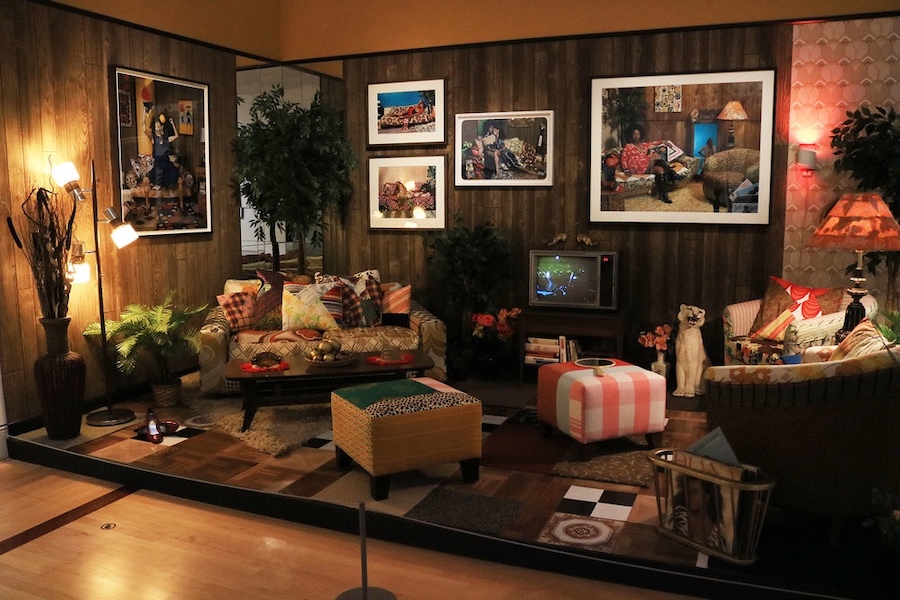
Art History Colloquium: Eric Anderson
MICKALENE THOMAS’S COZY CORNERS
My paper considers home decoration as a topic situated within the varied terrain of vernacular material culture, design practice, and artistic representation. As a starting point, I explore the domestic interiors portrayed by Mickalene Thomas in recent paintings, collages, photographs, and installations. Thomas collects and arranges decorative furnishings in her studio and in galleries, reviving a nineteenth-century artistic practice for twenty-first century home–makeover culture. Her collecting and display, in turn, provide the starting point for the production of a prolific body of domestic imagery. Thomas’s pictures of interiors follow a recognizable template with colorful, patterned, textile-laden surfaces that frame intimately enclosed spaces and languidly posed sitters. These contemporary cozy corners suggest a cult of hyper-adorned domesticity steeped in historical motifs and ideological meanings. Yet the exaggerated eclecticism and unorthodox materials (rhinestones, wood paneling, wax-print fabrics) and the assertive presence of the black, queer women who inhabit Thomas’s interiors indicate an intention to critically reimagine old motifs for new subjectivities.
To better understand Thomas’s critical revisions of decoration and domesticity, I make comparisons to past imagery from nineteenth-century painting and photography, 1950s modernist architecture, and a 1970s decorating manual. Thomas’s appropriation of historical motifs as well as her engagement with historical practices of the studio and the gallery draw attention to persistent, often hidden ways that home décor has been used to mark out boundaries of identity and belonging. Inspired by literary scholar Susan Fraiman’s notion of “extreme domesticity”—homemaking as a radical assertion of agency from positions of marginalization—I emphasize ways that Thomas’s exuberant décor subverts conventional definitions of gender, sexuality, and race in the home.
Eric Anderson studies and teaches the history of modern design. He has written on topics including exhibitions, color theory, Sigmund Freud’s office and the mass-marketing of furniture. Articles and reviews have appeared in the journals West 86th, Centropa, Journal of Design History and Nineteenth-Century Art Worldwide and in books including Design Dialogue: Jews, Culture and Viennese Modernism (Vienna, 2018), Making Home: The Arts and Crafts Movement and the Reform of Everyday Life (New Haven, 2018), Klimt und der Ringstrasse (Vienna, 2015) and Performance, Fashion, and the Modern Interior (Oxford, 2011). He has lectured recently in China, Greece and the UK and spent a semester as a Fulbright Fellow at the Sigmund Freud Museum and University of Applied Arts in Vienna.
Pre-circulated paper
Please email thad@risd.edu to receive a copy or RSVP here and we will email you a copy.
Light refreshments will be served.

Gradual Contemporary: Kader Attia
ON REPAIR
Kader Attia
For many years, Kader Attia has been exploring the perspective that societies have on their history, especially as regards experiences of deprivation and suppression, violence and loss, and how this affects the evolving of nations and individuals — each of them being connected to collective memory.
His socio-cultural research has led Kader Attia to the notion of Repair, a concept he has been developing philosophically in his writings and symbolically in his oeuvre as a visual artist. With the principle of Repair being a constant in nature — thus also in humanity —, any system, social institution or cultural tradition can be considered as an infinite process of Repair, which is closely linked to loss and wounds, to recuperation and re-appropriation. Repair reaches far beyond the subject and connects the individual to gender, philosophy, science, and architecture, and also involves it in evolutionary processes in nature, culture, myth and history.
Kader Attia (b. 1970, Dugny, France), grew up in Paris and in Algeria. Preceding his studies at the École Supérieure des Arts Appliqués Duperré and the École Nationale Supérieure des Arts Décoratifs in Paris, and at Escola Massana, Centre d’Art i Disseny in Barcelona, he spent several years in Congo and in South America.
The experience with these different cultures, the histories of which over centuries have been characterised by rich trading traditions, colonialism and multi-ethnic societies, has fostered Kader Attia’s intercultural and interdisciplinary approach of research.
In 2016, Kader Attia founded La Colonie, a space in Paris to share ideas and to provide an agora for vivid discussion. Focussing on decolonialisation not only of peoples but also of knowledge, attitudes and practices, it aspires to de-compartmentalise knowledge by a trans-cultural, trans-disciplinary and trans-generational approach. Driven by the urgency of social and cultural reparations, it aims to reunite which has been shattered, or drift apart.
In 2016, Kader Attia was awarded with the Marcel Duchamp Prize, followed in 2017 by the Prize of the Miró Foundation, Barcelona, and the Yanghyun Art Prize, Seoul.
Conversation to follow with Kate Irvin and Leora Maltz-Leca.
This lecture is co-sponsored by the RISD Museum, as part of Repair and Design Futures.

Gradual Contemporary: Ed Schlossberg
ART DESIGN LIFE
Ed Schlossberg
Ed Schlossberg has been working all his life to engage simultaneously between and among these three ideas – goals, projects and tools. He will continue to explore this odyssey in his talk.
FOUNDER / PRESIDENT / PRINCIPAL DESIGNER
ESI DESIGN
An internationally recognized pioneer in experience design and audience engagement, Ed Schlossberg launched his career in 1978 with the design of one of the world’s first interactive museums, The Brooklyn Children’s Museum.
Since then, he has been at the forefront of design and technological innovation, creating imaginative and unparalleled public experiences that bring audiences together to explore, learn, communicate and collaborate. Under Schlossberg’s leadership, ESI Design has created groundbreaking retail and corporate spaces, museums, and multi-player game environments for an array of corporations, brands and cultural institutions. Before he was known around the world for how he has changed museums, he was an artist and a poet. Over the last 50 years, Schlossberg has used words and images to create visual and poetic worlds in his art, using various and unconventional media. His artwork can be found in private collections and museums, including the Solomon R. Guggenheim Museum, the Metropolitan Museum of Art, and the Museum of Modern Art.
Schlossberg holds a Ph.D. in Science and Literature from Columbia University. In 2004, he won the National Arts Club Medal of Honor, and in 2011, was appointed by President Barack Obama to the U.S. Commission on Fine Arts. Singled out as “a leader in interactive design” by Wired magazine, he has authored 11 books. His artwork has appeared in several solo and group exhibitions and can be found in numerous museums and private collections.
Conversation to follow with Liliane Wong, Markus Berger and Leora Maltz-Leca.
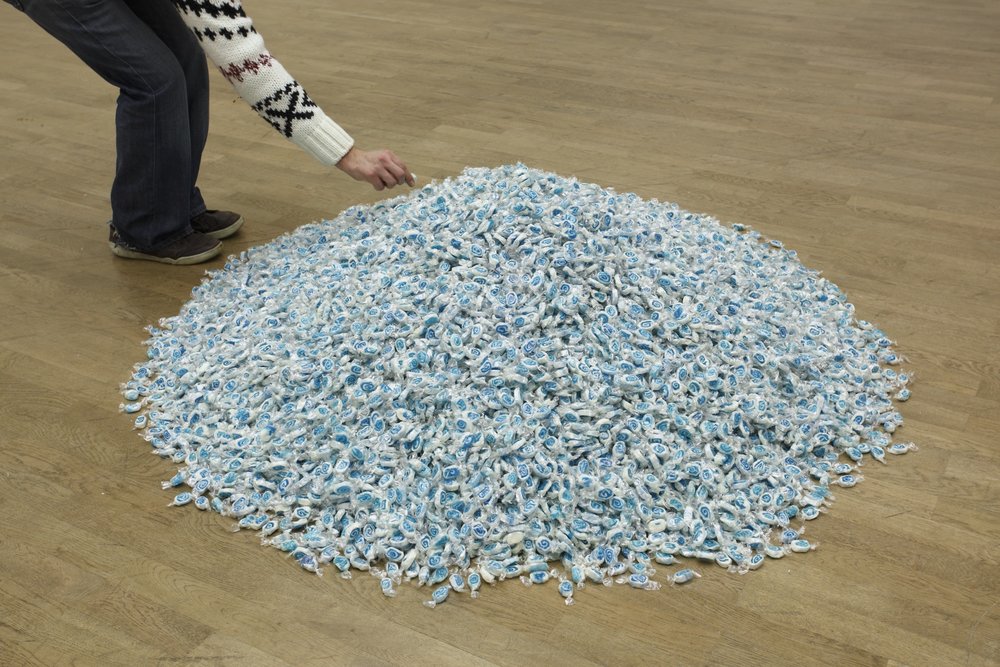
Art History Colloquium: Liz Maynard
WWFGTD? ON GENEROSITY AS PEDAGOGY, MODELED IN THE SCULPTURE OF FELIX GONZALEZ-TORRES
This piece is a consideration of Felix Gonzalez-Torres’ work as a potential pedagogical model. The focus of my recent writing and teaching practices have been how to engage in a supportive dynamic that creates space for embodied intelligence. Teaching at a notoriously demanding art school prompts reflection on the divisive and dehumanizing tendencies of academic institutions. I turn to the gifting energetics of Felix Gonzalez-Torres (FGT), whose work is a favorite among my students. The softness of FGT’s minimalism, at once rigorous and generous, haunted by presence and absence, joy and melancholy, has served as a physical model of what it means to teach from a place of empathetic connection with subject matter and students. My recent turn towards somatic pedagogy is beautifully figured in FGT’s stacks and piles that both implicate and elide the body without ever denying its centrality: an elegant metaphor for intellectual labor as an embodied experience. Teaching is a practice that requires laying a foundation with equal parts hope and discipline, and then relinquishing control. As I find myself largely without a road map on this path for engaging my students, subject matter, and self, I often ask what would FGT do?
Liz Maynard works as an art historian, yoga teacher, and body worker in Providence, Rhode Island. She teaches at the Rhode Island School of Design and Rhode Island College where she focuses on modern and contemporary art works oriented around embodied experience and the construction and deconstruction of subjectivities. Her prime methodology as a writer and teacher is to locate the threads of empathetic connections in both discourse and experiential practice that allow for a deeper understanding of the arts and each other.
Light refreshments will be served.

Gradual Contemporary: Chrissie Iles
AN INADEQUATE HISTORY OF THE PROJECTED IMAGE
Chrissie Iles
This lecture proposes new readings of the history of the projected image in American art since the 1960s, foregrounding issues around the black cinematic to propose alternative models to the assumptions of whiteness that have dominated the history of moving image art, and challenging the presumed neutrality of cinematic tropes including the camera, the screen, light, the gaze, opacity, and surveillance.
Chrissie Iles is the Anne and Joel Ehrenkranz Curator at the Whitney Museum of American Art. Her specialization is the work of emerging artists, moving image art, and art of the 1960s and 1970s. She has co-curated two Whitney Biennials, and numerous exhibitions of the moving image as well as sculpture, including a retrospective of Dan Graham. Her most recent exhibition, ‘Dreamlands’, explored the role of immersive moving image installations in the history of American art from 1905 to the present. She is responsible for building the moving image part of the Whitney Museum’s permanent collection. She is a member of the Graduate Committee of the Center for Curatorial Studies at Bard College, and a visiting professor in the Art Department at Columbia University. She was awarded an honorary doctorate by the Art History Department at Bristol University, England, in 2015.
This lecture is co-sponsored by the department of Film, Animation and Video.
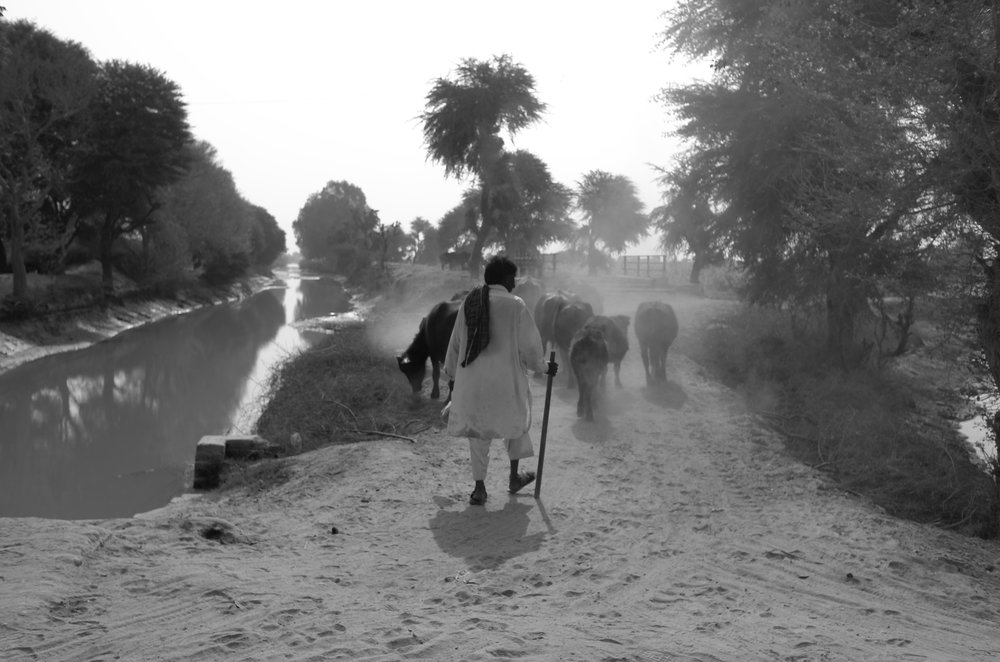
Art History Colloquium: Ijlal Muzaffar
SETTLING DREAMS, ON THREE SCALES (THE LAHORE BIENNALE READER)
In this talk, I will look at what has been a blindspot in architectural histories of non-Western modernism: the meaning of land. Before a building is put up, a plan is drawn, what histories have shaped the meaning of land, from the scale of an empire to a silt particle floating in water? Does architectural understanding of scale and materiality have something critical to say about it? I will explore these questions with a story both global and personal that unfolds when the British colonial government began digging canals in the Sindh desert in India in 1898 to grow cotton. The small farmers settled in the new colonies (my family amongst them) were met, however, not with the promised water but with a rebellion from the followers of Sufi saints that occupied the land and considered it holy. Who’s meaning does the land hold, the imperial bureaucrat defending the empire’s economy, the settler holding a British quail-hunting rifle at the approaching sound of rebel horsemen at night, or the Scottish engineer trying to keep the silt particles miraculously afloat in the new canals?
Ijlal Muzaffar is an Associate Professor of Modern Architectural History at the Rhode Island School of Design. He received his PhD from MIT in the History, Theory, and Criticism of Architecture and Art. He also holds a Master of Architecture from Princeton University and a BA in Mathematics and Physics from the University of Punjab. His work has appeared in edited volumes, biennale catalogues, and peer reviewed journals like Grey room, Future Anterior, and Aggregate, an architectural history research collaborative and publishing platform of which he is also a founding member. He is currently working on two book projects. The first, titled The Periphery Within: Modern Architecture and the Making of the Third World, looks at how modern architects and planners played a critical role in shaping the discourse on Third World development and its associated structures of power after the Second World War. The second book, called Settling Dreams, charts the changing meaning of land as British colonial government laid out new canals in the Sindh desert (now in Pakistan) in1898 and transplanted small farmers (his family among them) from faraway lands to grow cotton for Manchester mills.
Pre-circulated paper — please email thad@risd.edu to receive a copy or RSVP at http://thad.risd.edu/rsvp and we will email you a copy.
Light refreshments will be served.
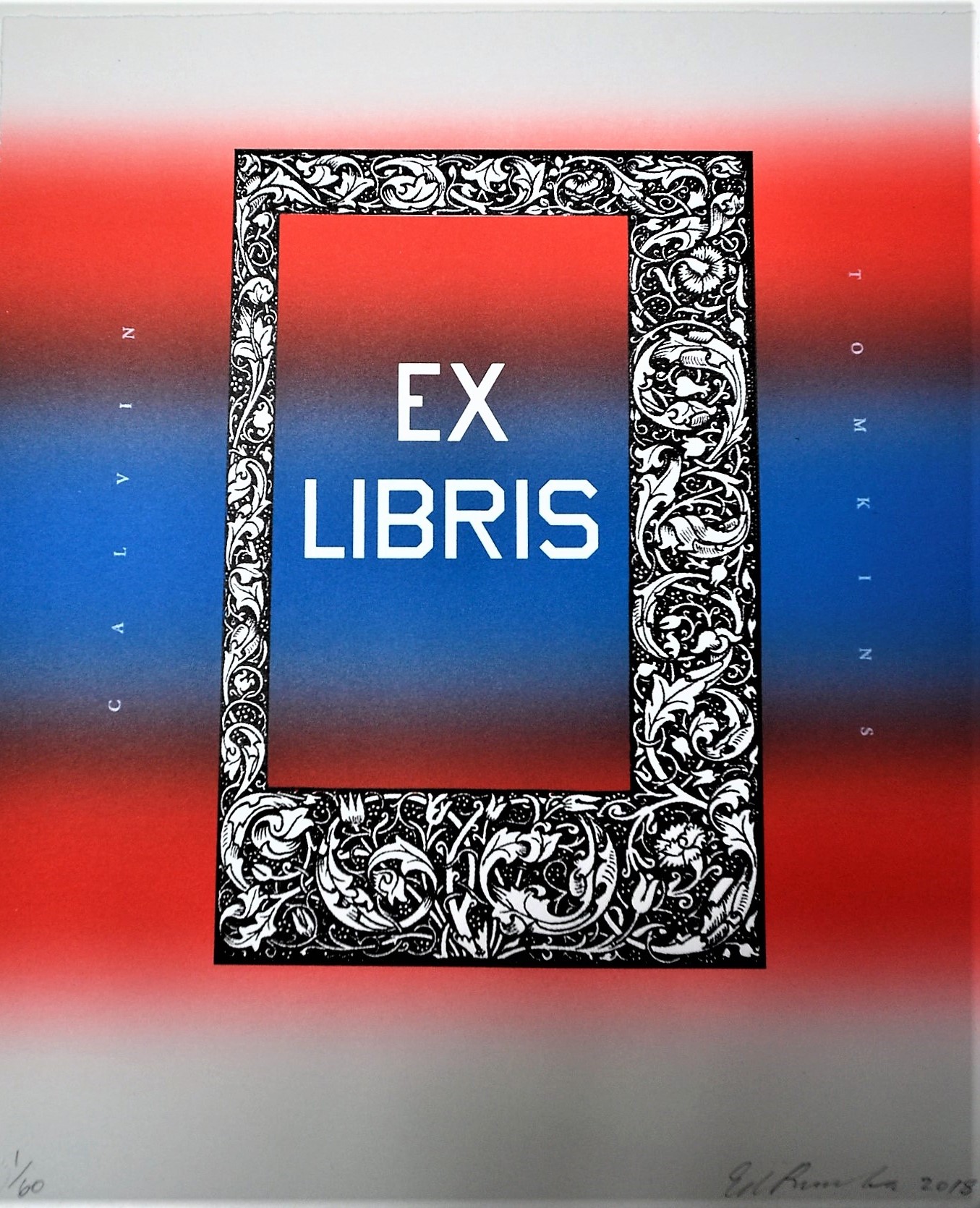
Since 1960: Contemporary Art and the Stakes of Criticism
To commemorate the donation of New Yorker writer Calvin Tomkins’ art book archive to the Redwood Library and Athenaeum in Newport, RI, the Redwood is partnering with RISD to present a day-long symposium on art criticism ‘since 1960,’ the year Tomkins began writing for the New Yorker. The symposium will address the relationship of Tomkins’ signature mode of writing—the profile—to other types of contemporary art writing. A range of voices, including critics, curators, artists and scholars, will ask: what is the place of subjectivity in contemporary art criticism?
The event commences on Thursday October 25, 2018 with a keynote titled Art and Critique by renowned art historian and critic Richard Shiff, and is followed by two panels on Friday October 26: The Place of the Self and Artist-Writer. A range of voices, including critics, curators, artists and scholars will ask: what is the place of artistic subjectivity in contemporary art criticism? Participants include leading figures such as Roberta Smith (New York Times Co-Chief Art Critic) and internationally acclaimed curator, Massimiliano Gioni (curator of the 2013 Venice Biennale and artistic director at the New Museum, New York), Randy Kennedy, former New York Times art world reporter, and currently head of special projects at Hauser & Wirth, Moyra Davey, internationally renowned artist and writer, John Miller, artist, writer, Barnard College professor and RISD alumnus and Roger White, artist, writer, editor, and RISD faculty.
Contemporary artist Ed Ruscha has created a painting, Ex Libris (2017), and a series of interpretive lithographs after it to mark Tomkins’ gift, which are on view at the Redwood until October 28, 2018.
This symposium has been generously funded by the VIA Art Fund, as well as RISD’s Liberal Arts Research Collaboration & Event Grant.
Keynote Speaker: Richard Shiff
Image: Ed Ruscha, Ex Libris, 2017, Acrylic on canvas
© Ed Ruscha. Courtesy of the artist and Gagosian.

Gradual Contemporary: Ariella Azoulay
THE IMPERIAL ORIGINS OF PHOTOGRAPHY
ARIELLA AZOULAY
Imagine that the origin of photography goes back to 1492. What could this mean? In this lecture, Ariella Azoulay will depart from the common theories and histories that present photography as a sui-generis practice and locate its moment of emergence in the midst 19th century around technological development and male inventors. Instead she would rather propose to locate the origins of photography in the “new world,” at the earlier phases of European colonialism and study photographs alongside early accounts of imperial expeditions. Obviously there are no photos from the mass destruction of the late 15th century, but viewing later images of destruction in the context of early expeditions, unravel the premises of what is called documentary and its role in minimizing the scale of the enterprise of destruction. Photography was institutionalized as a visual and communicative practice in a world that had already been colonized and enabled the reproduction of imperial divisions and imperial rights. It nailed down in images what Azoulay conceives as the right to destroy, to accumulate, to appropriate, to differentiate, to record what has been destroyed or appropriated, to study, rescue, salvage, and exhibit it. Interpreting these imperial rights as constitutive of the practice of the documentary, is key in understanding the power accumulated in the hands of image banks and corporations such as Getty or FB.
Ariella Azoulay is Professor of Comparative Literature and Modern Culture and Media at Brown University and author of Aïm Deüelle Lüski and Horizontal Photography (Leuven University Press and Cornell University Press, 2013), From Palestine to Israel: A Photographic Record of Destruction and State Formation, 1947-1950 (Pluto Press, 2011), Civil Imagination: The Political Ontology of Photography (Verso, 2012) and The Civil Contract of Photography (Zone Books, 2008), co-authored with Adi Ophir, The One State Condition: Occupation and Democracy between the Sea and the River (Stanford University Press, 2012).
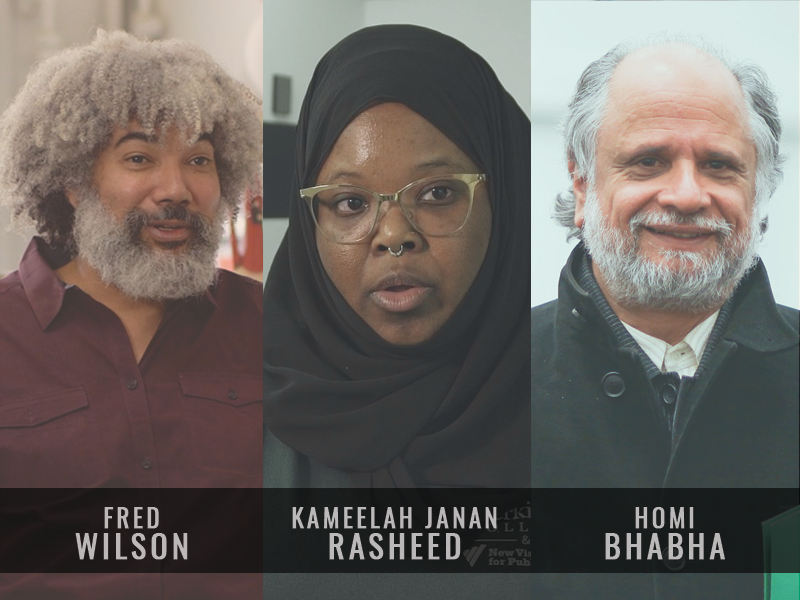
Homi Bhabha, Fred Wilson, and Kameelah Janan Rasheed: A Conversation on Cultural Appropriation, Representation and Free Speech in America
BHABHA / WILSON / RASHEED: A CONVERSATION ON CULTURAL APPROPRIATION, REPRESENTATION, AND FREE SPEECH IN AMERICA
6:30 – 8:00 PM
METCALF AUDITORIUM, RISD MUSEUM
Please join postcolonial scholar and Harvard professor Homi Bhabha, and American artists Fred Wilson and Kameelah Janan Rasheed for a panel discussion on the ethics and aesthetics of cultural appropriation, the ideals and limits of free speech, and the politics of representation. Please submit questions, concerns or issues that you would like raised during the conversation to lmaltzle@risd.edu by April 25, 2018.
Discussion will be moderated by Leora Maltz-Leca.

Art History Colloquium: Keynote Address
GLOBAL VORKURS: REASSEMBLING THE HISTORY OF THE BAUHAUS FROM THE GLOBAL SOUTH
JOAQUÍN BARRIENDOS
INSTITUTE OF AESTHETIC RESEARCH
NATIONAL AUTONOMOUS UNIVERSITY OF MEXICO
In 2019, Germany will be celebrating the one-hundredth anniversary of the inauguration of the Bauhaus. In order to celebrate the legacy of this influential school and aesthetic idea, Germany will relocate different Bauhaus archives in three new museums. In addition, a number of exhibitions and seminars around the globe will be discussing the presence of the Bauhaus worldwide. The centenary of the Bauhaus is the perfect arena for discussing the latest epistemological and geopolitical foundations that are encouraging art historical visions and museum imaginaries in Europe to become global. In this keynote address, Joaquín Barriendos focuses on the relationship between the Bauhaus and Latin America, with an emphasis on Mexico and the intense connection this country “south the border” had with several of the members of the Bauhaus.
Joaquín Barriendos is a Research Fellow at the Instituto de Investigaciones Estéticas, Universidad Autónoma de México in Oaxaca, México and an Associated Academic Curator at Tlatelolco University Cultural Center, Barriendos has published extensively on the globalization of Latin American contemporary art as well as the theorization of global art circuits and institutions. He has served as Latin American Cultural Studies Assistant Professor at Columbia University, Visiting Professor at the Universitat de Barcelona, and Research Fellow at the Institute National d’Histoire de l’Art in Paris. Barriendos’s is the authore of Geoestética y Transculturalidad: Globalización de la Diversidad Cultural, Políticas de Representación y Nuevo Internacionalismo del Arte Contemporáneo (Girona, Fundaciò Espais [Premio Espais a la Crítica de Arte]), and his writings have appeared in Javier Guerrero’s Visual Objects (Princeton University Press, 2018), James Elkins’s Art and Globalization (Penn State University Press, 2011), Mieke Bal’s Migratory Politics: Technology, Time, Performativity (Amsterdam, 2011), and Hans Belting’s The Global Art World: Audiences, Markets and Museums(Ostfildern: Hatje Cantz, 2009).

Gradual Contemporary: Claire Bishop
INFORMATION OVERLOAD: RESEARCH-BASED ART AND THE POLITICS OF ATTENTION
CLAIRE BISHOP
Bishop’s lecture looks at the rise of research-based art since the early 1990s and its relationship to the changing status of knowledge as a result of digital technology.
Claire Bishop is an art historian and critic based at CUNY Graduate Center. She is the author of Radical Museology, or What’s Contemporary in Museums of Contemporary Art?, Artificial Hells: Participatory Art and the Politics of Spectatorship and Installation Art: A Critical History.
This event is free and open to the public.
Registration required: REGISTER HERE
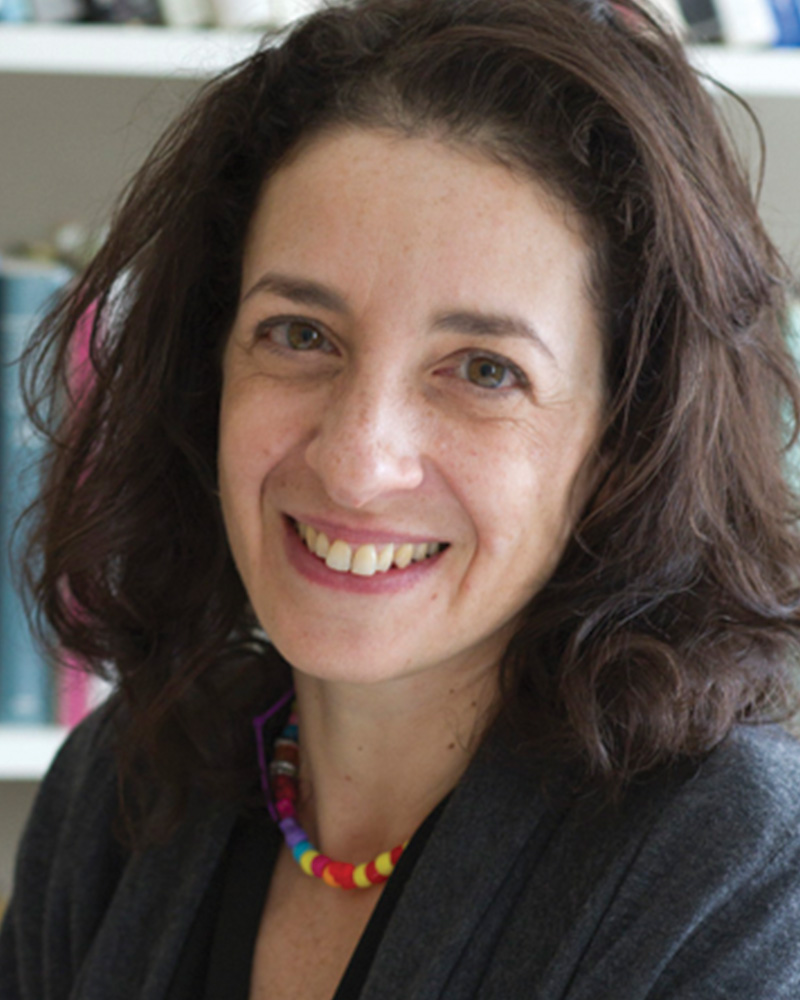
Gradual Contemporary: Rachel Haidu
THE TRAGICOMIC SELF: AMY SILLMAN AND PHILIP GUSTON
RACHEL HAIDU
Both Amy Sillman and Philip Guston make painting, in their different historical moments (respectively, the present and the 1960s-70s), into a tragicomic enterprise. This talk examines the role that shape plays in that enterprise, when it is seen not as a formal or compositional element but as key to both the tragic aspect of a painting’s historical reflection and its comic operations—its funniness. Tragicomic shape is the means that painting has at its disposal for exploring selfhood, a concept that Haidu develops in relation to not only painting but also video and dance in her new book.
Rachel Haidu is Associate Professor in the Department of Art and Art History and the Graduate Program in Visual and Cultural Studies at the University of Rochester. She is the author of The Absence of Work: Marcel Broodthaers, 1964-1976 (October Books: MIT Press, 2013).
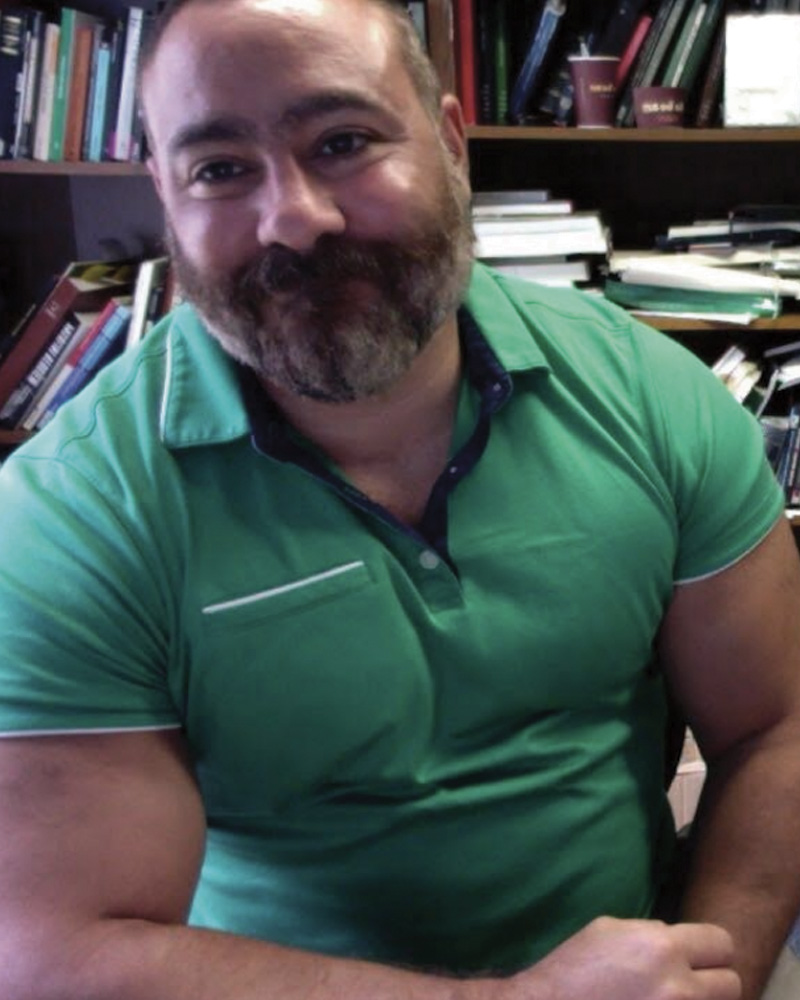
Gradual Contemporary: Ara H. Merjian
‘AT THE SAME TIME’: TOWARD AN ETHICS AND AESTHETICS OF (IN)VISIBILITY
ARA H. MERJIAN
Diderot’s famous Letter on the Blind, for the Use of Those Who See (1749) improbably names moral apathy as the natural inclination of the blind, whose inability to see leads Diderot to “suspect them of being, in general, unfeeling toward their fellow men.” To what extent have twentieth- and twenty-first-century aesthetics elaborated strategies of representing connections to bodies unseen or unacknowledged? What, in artistic terms, might constitute a phenomenology of distance and implication, as it relates to the witnessing of history or micro-history? And how do the visual arts—whose domain is sight itself—potentially shore up such distance, or else render intelligible its effects? This paper ventures some tentative answers in the light of specific efforts by European and American artists, from both before and after the late twentieth-century digital revolution: Pieter Bruegel the Elder, Renato Guttuso, Pier Paolo Pasolini, Martha Rosler, Eric Fischl, and Francesco Arena. It explores the extent to which an ostensibly interconnected globalization might belie an indifference which, as Carlo Ginzburg writes, “already implies a form of complicity.”
Ara H. Merjian is Associate Professor of Italian at New York University and author of Giorgio de Chirico and the Metaphysical City: Nietzsche, Modernism, Paris (Yale University Press, 2014).

Gradual Contemporary: Alexander Alberro
CONTEMPORARY ART AND THE GLOBAL TURN
ALEXANDER ALBERRO
A newly-formed transnational web of individuals and institutions has in the past three decades fundamentally changed the nature of contemporary art. Highlighting artworks and projects that have sought to make visible, analyzable and contestable the new forms of exchange, “Contemporary Art and the Global Turn” probes not only what has led to this complex transformation but also the impact it has had on the current conditions of artistic practice. In what ways is recent art distinct from previous modes of contemporary art? What are the conventions that contemporary artists face today? Where are they shaped? What precipitates them?
Alexander Alberro is Virginia Bloedel Wright Professor of Art History at Barnard College. He is the author of Abstraction in Reverse: The Reconfigured Spectator in Mid-Twentieth Century Latin American Art (University of Chicago Press, 2017); Conceptual Art and the Politics of Publicity (MIT, 2003), and has edited books on contemporary art including Working Conditions: The Writings of Hans Haacke (MIT, 2016), Institutional Critique: An Anthology of Artists Writings; Art After Conceptual Art (MIT, 2009); Museum Highlights (MIT, 2005), Recording Conceptual Art (University of California, 2001), Two-Way Mirror Power (MIT 1999); and Conceptual Art: A Critical Anthology (MIT, 1999).
Alberro is also the founding editor of the University of California Press’ book series “Studies on Latin American Art,” which commissions publications of art history and cultural practices emerging from Central and South America, the Caribbean, and the Latin American diaspora in the 20th and 21st centuries.
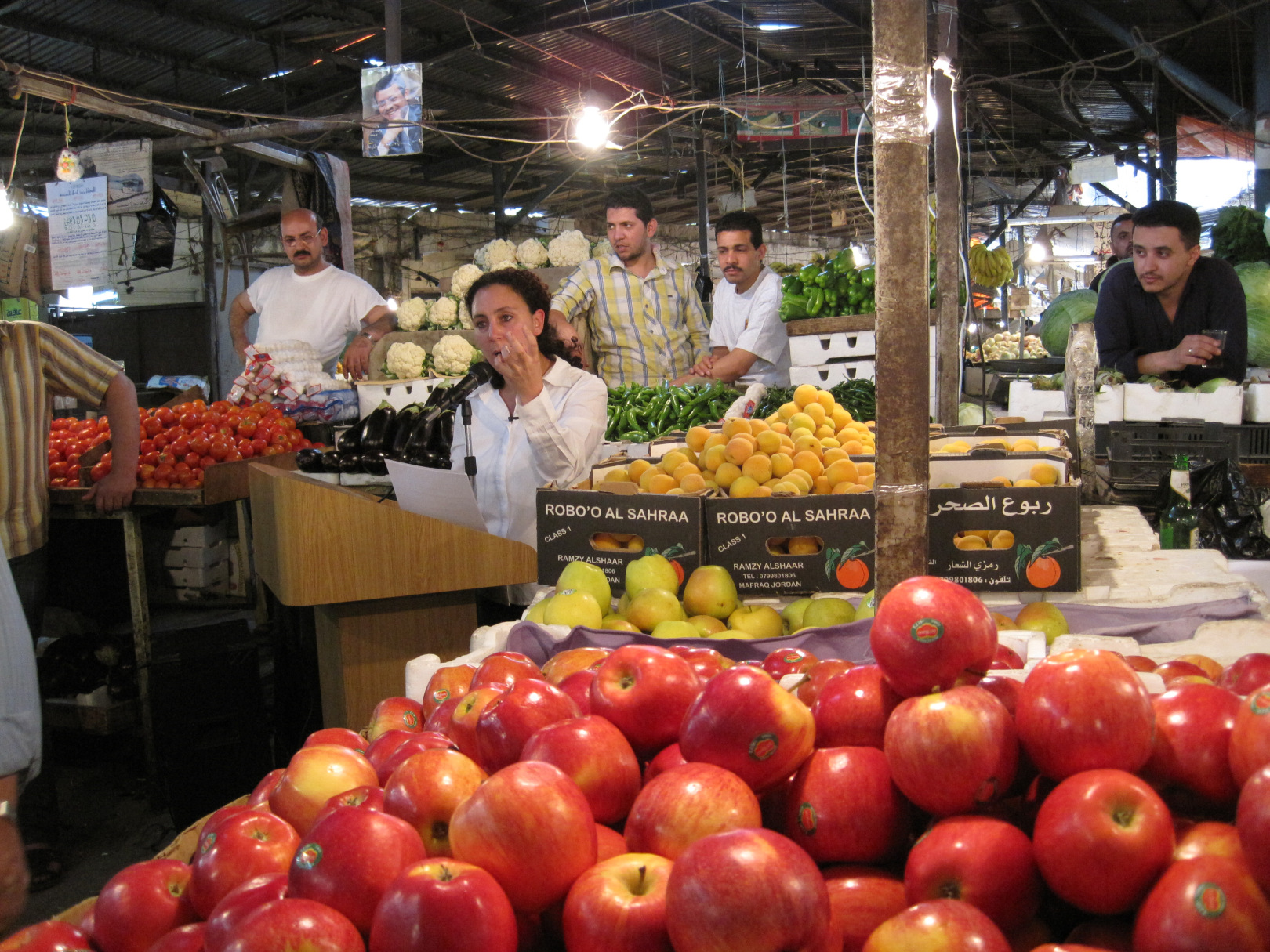
Art History Colloquium: Hanan Toukan
FROM PLO TO NGO: ARTS, LETTERS
AND THE DISSONANCE OF DISSENT AFTER THE COLD WAR
HANAN TOUKAN
Since the start of the Arab revolutionary process and the violence that has accompanied it, the arts have come to play an ever more crucial role as mobilizer, witness and archivist of historical events. As a result the domain has enjoyed an exponential growth in the technical and financial support it receives from US and EU funding bodies. This growth has provoked intense debates within policy circles and a plethora of academic literature on what the role of visual and cultural practices are and should be in violent warfare, political change and the study of politics and culture in the region. This talk will historicize and contextualize this phenomenon as its focus predates 2011 and grapples with it from its first appearance in the 1990s and until its consolidation in the aftermath of 9/11. Specifically the talk examines the ways in which transnational circuits of visual cultural production are related to how society makes, sees and experiences the political in art and its relevance to the wider publics in Jordan, Lebanon and the Occupied Palestinian Territories. The talk addresses prevalent debates about the nature of the political in art as well as the role of art and the intellectual in political change. It shows that both are part and parcel of shifting structural dynamics in local and international politics that directly impact the production of culture and how different generations practice them, perceive them and process them. Hence the talk is not is not so much about “art”, as much as it is about the “artworld” from a local perspective, and how culture in it is produced in a global world.
Hanan Toukan is Visiting Assistant Professor of Middle East Studies and Visual Arts at Brown University. Before joining Brown, Professor Toukan taught at the Freie Universität Berlin as well as at SOAS, University of London. She has also been a guest lecturer at Goldsmiths University of London in art history and visual cultures as well as Campus in Camps in Palestine. Professor Toukan was an EUME Postdoctoral Fellow in Berlin in 2012–2013, a Freie Universität Postdoctoral Fellow between 2014 and 2016 and a Kenyon Institute Visiting Scholar in East Jerusalem in 2012. Toukan is currently working on her manuscript based on her award winning Ph.D. titled “A Global Political: Art, Dissent and Diplomacy in the Arab World” under contract with Stanford University Press. Her articles have appeared in Arab Studies Journal, Cultural Politics, Journal for Palestine Studies, Review of Middle East Studies, Jerusalem Quarterly, SCTIW Review, Jadaliyya and Ibraaz amongst others. She has also contributed chapters to Narrating Conflict in the Middle East: Discourse, Image and Communication Practices in Lebanon and Palestine (2013, edited by Dina Matar and Zahera Harb), to Commitment and Beyond: Locating the Political in Arabic Literature since the 1940s (2015, edited by Frederike Pannewick and Georges Khalil) and Histories of Arab Documentary (edited by Viola Shafik).

Gradual Contemporary: Matthew Jesse Jackson on Our Literal Speed
OUR LITERAL SPEED PRESENTS EVERYTHINGISM
MATTHEW JESSE JACKSON
It could be argued that the most compelling art is no longer defined by particular media (painting, sculpture, photography, video), or by particular subjects (portraiture, landscape, still life, devotional image), or by particular strategies of representation (Cubism, Surrealism, Pop Art, Appropriation); instead, the true art of our time might best be described as being distinguished by activities that employ everything to evoke everything by means of everything.
Matthew Jesse Jackson is Associate Professor of Art History, Visual Arts, and the College at the University of Chicago. He is the author of The Experimental Group: Ilya Kabakov, Moscow Conceptualism, Soviet Avant-Gardes (University of Chicago Press, 2010) and co-author and co-curator of the book/exhibition Vision and Communism (September 2011 – January 12) at the Smart Museum of Art, University of Chicago.
Our Literal Speed is a text and art undertaking located in Selma, Alabama.
For more information on Our Literal Speed please visit their website here: Our Literal Speed
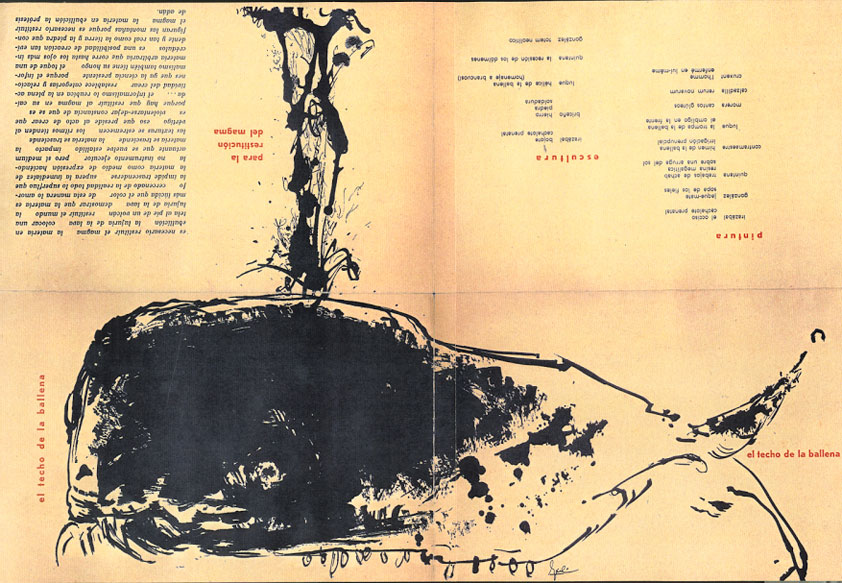
Art History Colloquium: Sean Nesselrode Moncada
THE MUTABILITY OF MAGMA: EL TECHO DE LA BALLENA AND THE VENEZUELAN PETROSTATE
SEAN NESSELRODE MONCADA
At a moment of political turmoil in Venezuela, the radical artist collective El Techo de la Ballena [The Roof of the Whale] produced a series of polemical exhibitions, publications, and documentary films that disrupted a modernist narrative of progress. Active between 1961 and 1969, the group was stylistically promiscuous and deliberately multidisciplinary, its activities unified only by a theory of “magma.” A formless, subterranean base material that serves as a thinly veiled metaphor for crude oil, this magma manifested in the group’s consistent preference for material confusion, visual flux, and narrative instability. By advancing a dissident view that Venezuelan modernism was little more than a Faustian bargain, El Techo’s heterogeneous practice challenged the dominance of kinetic abstraction while questioning the logic of the developmentalist petrostate, revealing an underbelly to the modernism that had long been obscured by a national push to “sow the oil.”
Sean Nesselrode Moncada is assistant professor of History of Art and Visual Culture at RISD, where he teaches courses on Latin American and Latinx art. He holds an MA and PhD in Art History and Archaeology from the Institute of Fine Arts, New York University, and a BA in Art History and English Literature from Swarthmore College. His research examines the contested development of modernism in the Americas and its uneven reception and implementation across the hemisphere. His current book project focuses on the artistic, architectural and theoretical development of Venezuelan modernism(s) at the height of the 20th-century oil boom, looking to the relationship between industry and patronage as well as the broader ideological stakes of visuality under an emergent petrostate. His research has been published in journals such as Architecture Theory Review, Caiana: Revista de Historia del Arte y Cultura Visual del Centro Argentino de Investigadores de Arte, and Hemisphere: Visual Cultures of the Americas. He is coordinator of the Providence and Rhode Island–area ACRAH Reading Group.
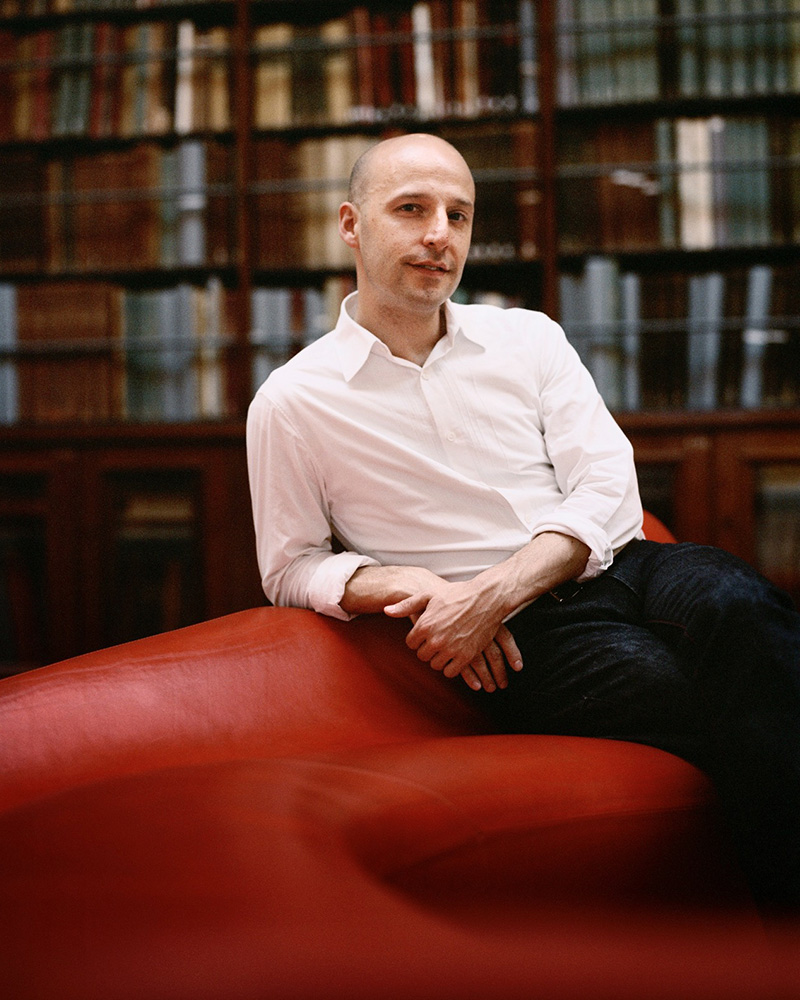
Gradual Contemporary: Glenn Adamson
MAKE OR BREAK: ON ARTISTIC EPIPHANY
GLENN ADAMSON
It’s one of the oldest stereotypes about art: the flash of insight, the “Eureka” moment, when everything comes together for an artist and the work leaps into new territory. What actually happens in these moments? And what had to happen first, before they arrive? In this talk, Glenn Adamson will journey into the studio and the life of artists, to explore the nature of creative revelation. He will concentrate particularly on two figures from his current and recent research: the ceramic sculptor Peter Voulkos and the fiber artist Lenore Tawney. Though working on opposite coasts and in different media, they had simultaneous breakthroughs in the late 1950s which reshaped not only their own careers but their entire disciplines. Through close examination of these two case studies, Adamson will offer a model of what goes into such decisive imaginative leaps.
Glenn Adamson is a curator and historian based in Brooklyn and the author of The Craft Reader, Thinking Through Craft, and The Invention of Craft.
This event is co-sponsored by the Ceramics Department.

Art History Colloquium: Foad Torshizi
THE WORLD BETWEEN MY FINGERS: LOCATED WORLDLINESS IN THE PHOTOGRAPHY OF MEHRAN MOHAJER
FOAD TORSHIZI
“The World Between My Fingers: Located Worldliness in the Photography of Mehran Mohajer” examines the ways in which Mohajer’s photography enables a “worldliness” that is deeply rooted in the visual and literary traditions to which he, as an Iranian artist, belongs as well as in the history of photography. This rootedness allows Mohajer to effectively resist the widespread demand of Western art institutions that the aesthetic economies of non-Western artworks align with Euro-American understandings of meaning, value, aspiration and desire. “The World Between My Fingers...” is part of a chapter in a manuscript Torshizi is currently working on, entitled “The Clarity of Meaning”: Contemporary Iranian Art and the Cosmopolitan Ethics of Reading in Art History.
Foad Torshizi is assistant professor of Art of the Islamic World at RISD. He holds degrees in Comparative Literature and Society and Middle Eastern and Asian Languages and Cultures (PhD and MPhil, Columbia University), Art History (MA, University of Minnesota) and Photography (MFA, Honar University of Tehran). Prior to joining the RISD faculty in 2017, he taught graduate students at Tehran University, advanced undergraduates and graduate students at the Università degli Studi di Milano in Italy as well as undergraduate students at Columbia University’s Core Curriculum. His research interests are in the areas of global contemporary art, contemporary Iranian and Middle Eastern art, postcolonial theory, ethics of readership, theories of globalization and cosmopolitanism, comparative literature and politics of translation and interpretation. Torshizi’s research has appeared in academic journals both in the US and Iran. Most recently he has published an article in Herfeh: Honarmand on the works of the prolific Iranian artist Barbad Golshiri.
